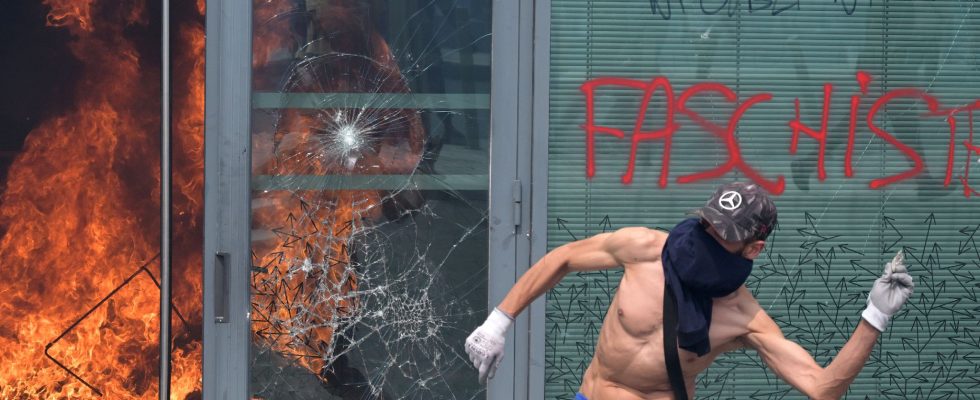For almost three years, from 2013 to 2016, the senior civil servant Didier Leschi held the position of delegate prefect for equal opportunities in Seine-Saint-Denis (93). From his experience in the field, this chevènementiste drew the certainty that the republican reconquest was much more an ideological affair than a security affair. According to him, the neighborhoods now lack men and women on the ground capable of propagating the values of an inspiring and emancipatory living together. The public authorities can well build and rebuild sports or cultural facilities, as long as the living forces which, even yesterday, helped socialization desert these territories, the rioters will be deprived of the political conscience which would allow them to bring claims that can modify in depth, and for the better, the living environment in these neighborhoods. In the meantime, “everyone plunders for himself, and destroys as a group so that the others no longer benefit from the common goods”, laments the director of the OFFI.
L’Express: Since the death of young Nahel, killed during a police check in Nanterre, several towns and neighborhoods were shaken by riots, looting and fires. Which France is in the street?
Didier Leschi: We will have to wait for a more precise assessment from, in particular, the analysis of the profile of the people arrested during the riots. They are obviously young teenagers and mostly young men, although here and there a few girls seem to have taken part in the looting. It would not be surprising if we were in the presence of “ni-nor”, that is to say young people who are neither in training nor in employment and who, consequently, settle in a way of life where parallel economies dominate and an illegality that the authorities find difficult to sanction.
This minority takes hostage a population which is the first to suffer from the destruction of the common goods of the district. It is also this minority which, on a daily basis, wants to dominate public spaces, making women the first victims; and penalizing all those who work or aspire to a quiet life. The drama that these neighborhoods are going through is also the drama of those who get up to go to work. Burning cars, means of transport, is to want to destroy a certain sense of social dignity. It is a conflict that is expressed within these plural youths as immigrations are plural.
Moreover, it is also remarkable that in some of these neighborhoods women and mothers of families, fathers, have, after a few days, organized themselves in order to defend the common goods on which they rely to precisely build a life worthy. They thus express the fear of a collective regression into which a minority of rioters would like to drag them. If, like all of us, they are moved by the senseless death of a young man, they know well the part of the pretext that the rioters find in this tragedy to justify their present unleashing of violence.
Republic symbol equipment is under attack (schools, town halls…): does this mean that these revolts are political?
Politics is trying to convince others in order to advance demands for the future. We are witnessing the exact opposite. Those who destroy do not have the ambition to convince neighbours, parents, adults of the correctness of their actions. Hence, moreover, the hunt for journalists, since it is not a question of convincing. These destructions express nothing but a nihilism which is the opposite of a political program. It is a “no future”, a movement whose only aspiration is to want access to material goods. You need designer shoes, state-of-the-art phones, flat screens, etc. We are far from the youth of May 68 who shouted “Open your eyes, break the TV”. Everyone plunders for themselves, and destroys as a group so that the others no longer benefit from the commons.
Regularly, one denounces the state of abandonment in which the State would leave the districts. However, some of them seem to be better endowed with cultural and sporting infrastructures than towns of what Christophe Guilluy called “peripheral France”.
If the public authorities can open public services or renovate buildings – many things have actually been done – they cannot, by the operation of the Holy Spirit, reconstitute the living forces which helped socialization and precisely politicized the populations. .
Many of those who today denounce the abandonment are also the first to have abandoned these neighborhoods. To believe that only the “rich” in the economic sense would have seceded is to pass a little too quickly on a well-meaning inter-self which has replaced the popular districts of the hearts of agglomeration. Aren’t the richest cities in France run by elected officials who reflect a distinguished cultural bourgeoisie, to use Bourdieu’s categories, who lives well and likes to sympathize from afar? The same one who suddenly finds herself confronted with the virilism of the riot, with infrapolitical violence and who thinks that by accusing the police of all the evils, she will politicize the rioters.
